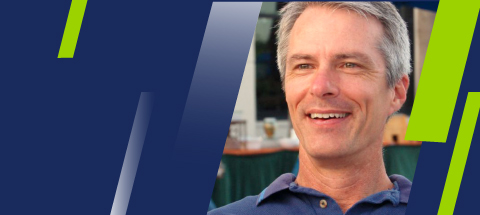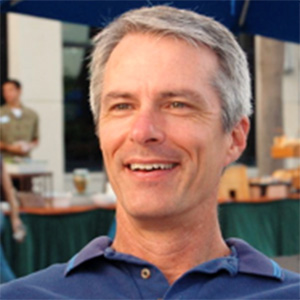Overview
Dr. Edward Rogers has helped thousands of people learn to think more conceptually and improve their personal decision-making ability. For seventeen years he was the Chief Knowledge Officer at the NASA Goddard Space Flight Center near Washington, DC. As a professor he has taught a popular course at the Indian School of Business for over 10 years introducing his thinking approach to India’s emerging business leaders. He has also taught hundreds of executives around the world the way to better thinking, better learning, better decision-making and better results.
As a participant in this four-part course you will gain insight into how the human brain learns, how to learn faster, and why we make poor decisions and often fail to learn from either successes or mistakes. In this course you may double your learning capacity while you learn to make more thoughtful and informed decisions. You will learn how to get twice as much value from brainstorming events boosting innovation. You will also discover how to systematically reflect and learn from your experiences. Dr. Rogers will engage the participants in a learning journey illustrating what he has taught at NASA and used with corporate executives around the world to help leaders make better decisions.
Let’s hear from the Expert himself
Benefits of attending this course:
1. Understand the human learning process so you can increase your learning capacity and make the most of your amazing brain
2. Build your ability to think conceptually and correct mental models as the essence of learning and the secret to addressing complexity
3. Learn how to conceptually map your thought processes to consistently make better and more informed decisions
4. Add more value to your organization by managing the decision process and not just the decision.
5. Make a bigger and better difference in your world by inspiring those around you to become better learners.
Who should attend:
- Managing Directors/CXOs/Leadership Team
- Company Owners/Founders
- Entrepreneurs
- Start-ups
- Team Leaders
- Mid-level managers
- Anyone who is getting trained to lead
Modules
- Module 1: Experience Doesn’t Necessarily Make You Smart
16 September, 2020
- Module 2: Mapping Mental Models for Turbo-Charged Thinking
17 September, 2020
- Module 3: The Art of Conceptual Thinking: Learning How to Learn
5 November, 2020
- Module 4: Better Decisions, Better Leaders, Better Results
6 November, 2020
Agenda
-
9:30 AM – 12:00 PM
Module 1: Experience Doesn't Necessarily Make You Smart
In the first session see how it takes experience plus learning to be smart. Experience alone won’t necessarily make one smarter.
- In this session you will take an illustrated walk down the lane of human learning with lessons from behind the scenes during the successful NASA Apollo mission to the moon and from the tragedy of the loss of the space shuttle Challenger.
- You will start by examining the fundamental way human brains learn and assemble knowledge. You’ll also look at why people sometimes fail to learn including how our senses can fool us and how our logic can mislead us.
- Understand why people keep doing things the same way and how lack of learning is like an addiction: It feels good, we feel smart about it, but it can lead us into disaster.
- See how it is possible to become a life-long learner and self-coach able to avoid repeating mistakes or over-reacting in situations.
-
9:30 AM – 12:00 PM
Module 2: Mapping Mental Models for Turbo-Charged Thinking
In the second session learn hands-on how to make your own concept maps freeing you to see your mental models.
- In this session you will learn how to boost your brain learning capacity using only pen and paper. This technique alone may help you double the value you get from corporate brainstorming events.
- You will learn how to make your own concept maps to visualize your mental models. Only by seeing your mental models can you adjust them with new information which is the essence of learning.
- You will examine why some of the best start-ups begin with a napkin drawing but then may get lost as they expand and lose focus.
- You will look at how NASA improves decision making and learns from failures like the Columbia tragedy.
- You will practice a proven method to improve your career trajectory. You will learn how to chart your own course to a better style of leadership and live your life with fewer regrets.
-
9:30 AM – 12:00 PM
Module 3: The Art of Conceptual Thinking: Learning How to Learn
In the third session learn the art of conceptual thinking as the foundation for learning how to learn.
- In this session you will learn how to see your own thinking processes and become aware of your internalized models. This will help you learn more from your experiences and improve your personal operating models. See an example of a learning tool called PaL that was implemented across NASA to help project teams learn more contextually and is being used now to learn lessons from the Covid Virus Pandemic.
- Examine several business models including the launch of the Airbus A380, the Bhopal gas tragedy and the Delhi Metro to demonstrate how we can effectively learn from others’ successes and failures.
- Learn the power behind concept mapping to address complexity in the marketplace. You will be able to use it immediately for better business results.
- Examine some NASA decision cases and test your learning ability against some of the smartest people in the world.
-
9:30 AM – 12:00 PM
Module 4: Better Decisions, Better Leaders, Better Results
In the final session put it all together to make better decisions, be a better leader, and achieve better results.
- In this session you will understand the connection between learning and better decision-making as the best motivation for change.
- Gain confidence in your own existing leadership abilities including the ability to do more confident leading by doing less deciding.
- Make more people willing to follow you and engage with your vision by being more transparent with your mental models for your team.
- Focus more on the the highest value-add function of a leader in any organization: guiding the decision-making process.
Expert
Dr. Edward W. Rogers
Faculty, ISBDo you have any queries?
Drop us a line and we will call you.


